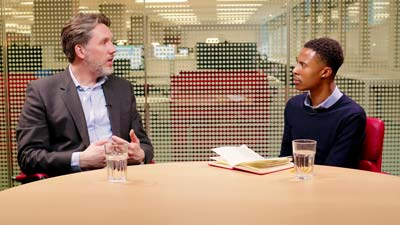
Writing your will or doing your estate plan is one of those to-do list items that can always be put off for another day. After all, I’m not going to die today – right?
So offputting is estate planning, that last year I even went to the effort of getting a will written up with the help of a professional and am still yet to formalise it. All that involves is me printing the document, signing it and getting it witnessed – and I still haven’t managed it! Am I lazy, stupid or just frozen by inertia? Don’t answer that.
Estate planning today is, unfortunately, far more complicated than it has ever been. Whether it’s working out where all your old pension pots from previous jobs have got to, or remembering the passwords for every online account you hold – there’s an intimidating amount to keep track of.
Christine Benz’s enlightening article this week raised even more points I hadn’t considered: what happens to your pets if you die? Luckily my only “pet” is a rather needy corn palm plant whose leaves seem to fall off unless you feed it bottled water, but for many people who gets charge of Fluffy is a real head-scratcher.
End of life planning is becoming an increasingly important factor to consider as we live longer, and the concept of an ethical will is only going to become more mainstream in the coming years.
My measly document addresses none of these things, and it clearly should. Maybe it’s for the best that I never got around to printing it.
Regrets, I've Had a Few
Quite often I’ll see a stock that has soared and wish I had a time machine so I could go back a few months a invest my life savings in it. If said time machine could drop me briefly in 2014 at Fevertree’s (FEVR) IPO that would be ideal, and I’d perhaps stop off in January of this year to put some of those proceeds into Teladoc (TDOC) on my way back to the present day.
This week we heard from private investor Aaron Fowles who regrets not putting all his money in tech stocks. Because while he has very sensibly tried to diversify his portfolio across different sectors, it’s only his technology investments which have done any good.
One thing he said which I found particularly striking was that because he hadn’t put more money in the tech stocks “I’m thousands of pounds down now”, as though the gains which could have been were already his.
This is, of course, the exact idea behind diversification: that your investments should behave in different ways to each other. The upshot of this is that it can be frustrating when some of your holdings are flying and others are floundering. But the real benefits come through at times of crisis when – hopefully – they don’t all plunge at once.
So, I hope Aaron sticks with his disappointing diversifiers for now – if they are fundamentally strong businesses, they should come good in the end.
Two Become One
Is the merger of the Murray Income and Perpetual Income & Growth investment trusts a good outcome for investors? It’s certainly a fairly unusual one.
Investors in the Perpetual trust have endured several years of very poor performance – the upshot of which is that the trust’s manager, Mark Barnett, was removed earlier this year. But I’m not sure that simply rolling it into a better-performing rival really solves the problem.
For starters, the Murray Income managers will now have more than £500 million of money to put to work. That’s no mean feat at the best of times, but when that money is already tied up in the shares of companies the managers may not want to own, and which may be on a downward trajectory, that has the potential to derail Murray Income’s performance, at least in the short-term.
Perpetual investors will have the choice to simply get their money back – well, up to 20% of the trust’s assets anyway. But what of Murray Income investors? The remit of the trust they have chosen is changing, too. There is a difference between a £500 million trust and a £1 billion one, and more money is not necessarily a good thing.




























